Everything you should know about parasitic infection cases
Learn more about the types of parasitic infections, remedies, and ways to prevent them.
Everything you should know about parasitic infection cases
Learn more about the types of parasitic infections, remedies, and ways to prevent them.
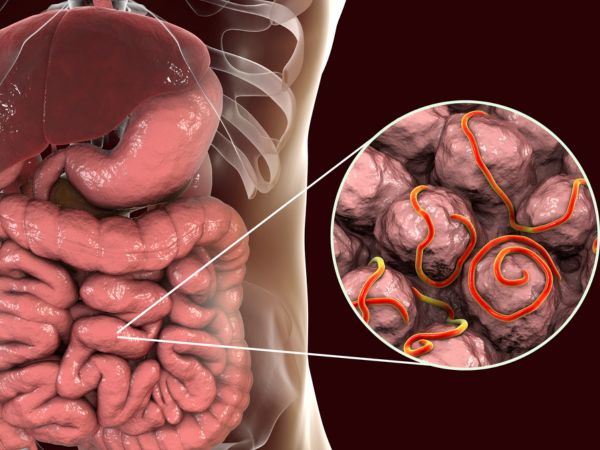
What is a parasitic infection?
Parasitic infections are illnesses or conditions caused by parasites living and reproducing in the body. These parasites can be microscopic or visible to the eye. Generally, these parasites live off of other organisms to survive in the body.
Parasitic infections are most likely to stem from the consumption of contaminated food or water or undercooked meat, or from contaminated surfaces or bug bites.
According to a World Health Organisation (WHO) report, about 24% or 1.5 billion of the world’s population has been infected with intestinal parasitic infections.
In Australia, one of the most common human worm parasitic infections is caused by the dwarf tapeworm, a parasite that affects up to 55% of some remote communities. According to official figures, Australia has threadworms, which infect up to 50% of children.
What is a parasitic infection?
Parasitic infections are illnesses or conditions caused by parasites living and reproducing in the body. These parasites can be microscopic or visible to the eye. Generally, these parasites live off of other organisms to survive in the body.
Parasitic infections are most likely to stem from the consumption of contaminated food or water or undercooked meat, or from contaminated surfaces or bug bites.
According to a World Health Organisation (WHO) report, about 24% or 1.5 billion of the world’s population has been infected with intestinal parasitic infections.
In Australia, one of the most common human worm parasitic infections is caused by the dwarf tapeworm, a parasite that affects up to 55% of some remote communities. According to official figures, Australia has threadworms, which infect up to 50% of children.
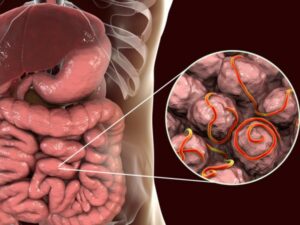
Types of parasitic infections
UThere are 3 types of parasitic organisms that can lead to the infection.

Protozoa
Single-celled organisms that can live and multiply inside the body

Helminths
Multi-celled organisms that can live in or outside of your body
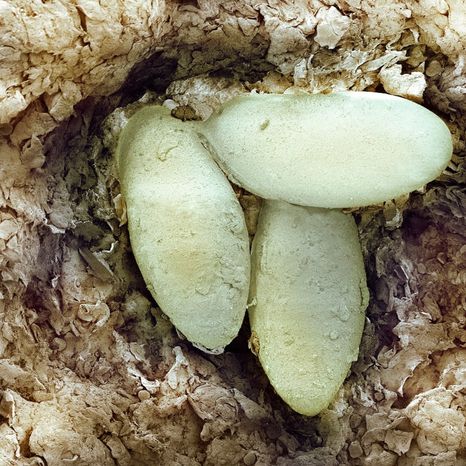
Ectoparasites
Multi-celled organisms that live on or feed off your skin
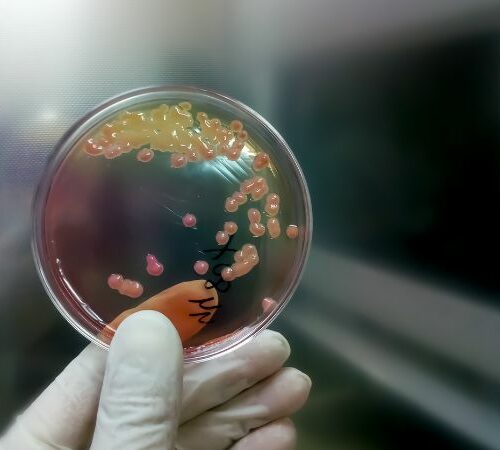
Where can you get a parasitic infection?
Parasitic infections usually enter the body through the mouth or skin. Anyone can get a parasitic infection and it is highly contagious.
However, some people are more likely to catch it based on their present health condition, hygiene, lifestyle, geographic location, and occupation.
Patients are more prone to parasitic infections if they:
- Have a weak immune system or are already down with another illness
- Get bitten by mosquitoes, ticks, and flies or other insect bites
- Eat undercooked meat or contaminated food
- Live or travel in tropical regions
- Lack a clean supply of drinking water
- Swim or bathe in lakes, rivers, or ponds where parasites are common
- Work in childcare, work with soil regularly, or work in other contexts where you come into contact with faeces consistently
- Partake in unprotected sex
- Engage in oral sexual activity
When should I see a doctor?
Intestinal parasite infections don’t usually cause major symptoms; however, if you suspect that you have an infection, you should consider seeing a doctor.
If you have the following symptoms, get help immediately:
- Blood in stools
- High fever
- Sudden weight loss
- Extreme fatigue
- Long-term diarrhoea
- Redness on the skin
If you’re experiencing one or more of the aforementioned symptoms of parasites in the gut, see a doctor as soon as you can.
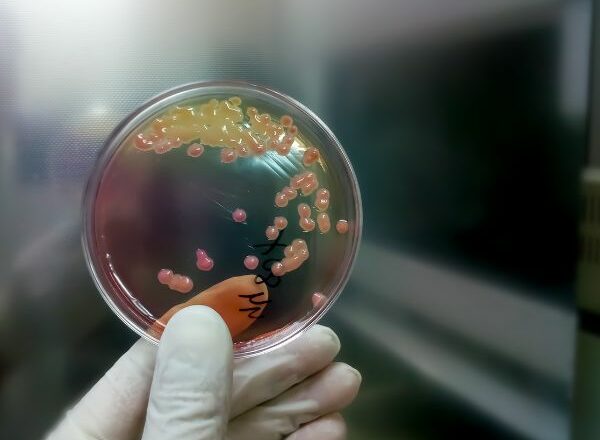
What causes parasitic infections?
The symptoms of parasitic infections vary depending on the organism.
Trichomoniasis
Sexually transmitted infections caused by a parasite that often produces no symptoms. May cause itching, redness, irritation, and an unusual discharge in your genital area
Giardiasis
Transmitted through contaminated food, water, or surfaces and may cause diarrhoea, gas, upset stomach, nausea, greasy stools, and dehydration, but some experience no symptoms
Cryptosporidiosis
Parasitic infection caused through stools which may cause diarrhoea or watery stools, abdominal cramps and pain, nausea, vomiting, dehydration, weight loss, and fever
Toxoplasmosis
Transmitted through contaminated food, water, or surfaces which may cause flu-like symptoms, such as swollen lymph nodes, muscle aches, or pains which can be long-lasting
How to treat parasitic infections
The treatment for parasitic infections depends on the type of infection, how far the infection has progressed, and how you contract the infection. Your doctor or specialist will recommend a treatment plan based on your diagnosis and prescribe other separate treatments to relieve symptoms. Your doctor will likely encourage you to drink plenty of fluids to stay hydrated.
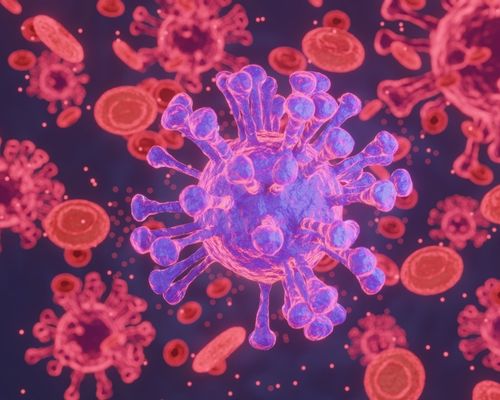
How to treat parasitic infections
The treatment for parasitic infections depends on the type of infection, how far the infection has progressed, and how you contract the infection. Your doctor or specialist will recommend a treatment plan based on your diagnosis and prescribe other separate treatments to relieve symptoms. Your doctor will likely encourage you to drink plenty of fluids to stay hydrated.



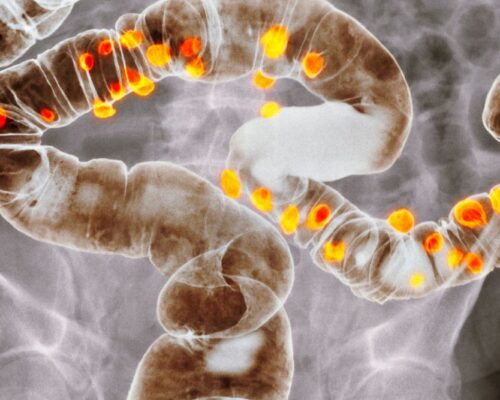

How are parasitic infections diagnosed?
Parasitic infections can be diagnosed in several ways, such as a blood test, faeces exam, endoscopy, X-rays, magnetic resonance imaging (MRI), or computerised axial tomography (CAT).
How are parasitic infections diagnosed?
Parasitic infections can be diagnosed in several ways, such as a blood test, faeces exam, endoscopy, X-rays, magnetic resonance imaging (MRI), or computerised axial tomography (CAT).


How to prevent parasitic infections
Several steps may be taken to lower the risks of contracting a parasitic infection.
- Practise safe sex, using a condom
- Wash your hands regularly, especially after handling uncooked food or cleaning out faeces
- Cook food to its recommended internal temperature and place a timer while cooking to prevent undercooked food
- Drink clean water
- Avoid swallowing water from lakes, streams, ponds, or unknown water sources
- Avoid cat litter and faeces at the time of pregnancy
- Protect yourself from bug bites
- Maintain good hygiene practices
By getting early treatment, you can help stop the spread of infection to other people and if you suspect you have a parasitic infection, make an appointment with your doctor or specialist. They can help diagnose the cause of your symptoms and draw up a treatment plan.
See a gastrointestinal specialist today
The Sydney Gut Clinic has a team of dedicated and highly experienced gastrointestinal specialists who are trained to provide support and treatment for all kinds of gastrointestinal conditions.
If you’re experiencing the symptoms of parasites in the gut, visit our clinic for intestinal parasite treatment.



See a gastrointestinal specialist today
The Sydney Gut Clinic has a team of dedicated and highly experienced gastrointestinal specialists who are trained to provide support and treatment for all kinds of gastrointestinal conditions.
If you’re experiencing the symptoms of parasites in the gut, visit our clinic for intestinal parasite treatment.



FAQs
Is a parasite a virus or bacteria?
Parasites are part of a large group of organisms. Parasites are different from bacteria and viruses because their cells share many features with human cells. Some parasites only replicate within a host organism, but some can multiply freely in the environment.
How long can parasites live without a host?
For a parasite to live, there needs to be a host for it to survive in the body. Without a host, a parasite cannot live, grow, and multiply. A parasite rarely kills its host, but it can spread diseases that may be fatal. Parasites have the ability to live for years without causing symptoms.
Are parasitic infections difficult to diagnose?
Diagnosing parasitic infections may be difficult, which might result in a series of tests being conducted. Parasitic infections are more difficult to diagnose but are not impossible to identify. If you suspect being diagnosed with a parasitic infection, a medical provider needs to carefully review the person’s symptoms and determine if there are signs of parasites.
Unfortunately, a parasitic infection may need to get worse before it can be identified or before it causes symptoms that line up with the condition because these infections are very likely to mimic other conditions.
